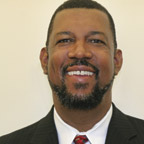Entrant Worker Challenges in This Economy

- Those looking for summer employment opportunities between the end of one school year and the beginning of another
- Those looking for a summer job and part-time employment when they return to school
- Those graduates seeking to enter the workplace with a full-time position as a first step in their professional career.
Our entrant workforce presents a unique workforce development challenge. They obviously represent our economic future. The other less obvious reality is that for the first time, our young people are in competition with every other young person in the world for opportunities in high-growth and high-wage jobs. This means that they will have to be better educated, trained and prepared than their international competition. So far, we are not doing so well.
The U.S. lags our international counterparts in academic achievement in the vital subjects of math and science. Our national high school graduation rates hover at about 70 percent, with significant pockets of our population graduating at 50 to 55 percent. Our Illinois high school achievement tests reveal that only between 50 to 60 percent of our young people are competent in the areas of reading, math and science by the 11th grade. In addition, employers cite skill deficits for young workers in the areas of attendance, timeliness, work ethic, reading comprehension, problem solving, written communication, customer service and personal responsibility.
As young people seek employment this summer, they should keep in mind several realities. First of all, in an economic downturn, fewer private-sector employers may be hiring, yet the need for government services may increase. There may be summer jobs and youth service opportunities with local municipal and county government and nonprofit organizations. Secondly, while summer jobs rarely involve highly technical or professional responsibilities, they can provide invaluable training in those critical soft skills or basic employability skills.
A third area of consideration is to keep in mind that those jobs with the greatest career potential will require higher skills and abilities. Most will require post-high school education and training. It is essential for young people to look beyond high school for long-term career possibilities: the more education, the better. Finally, students’ curriculum experience directly prepares them for higher education and future career opportunities. Too few students are excelling in the critical foundation subjects of math and science. Many new career opportunities will be in technical areas that require a mastery of these subjects.
Summer jobs can build character and prepare our youth with a foundation of skills that will last their entire careers. It can also help them make the critical mental connection between the relevance of school and the realities of work. iBi

